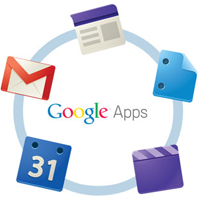As we continue to plan the migration of faculty and staff email and calendaring to Google Apps for Education, we want to keep you up to date on the project. We respect your need for information, so we will be transparent throughout this process as we bring these powerful new tools online for the community.
Right now, Technology is working with the Leadership Team to determine dates for migrating faculty and staff. The migration will be done in phases so we can provide individual assistance and instruction to everyone. Our goal is to begin the migration in January and continue through the Spring semester. We hope to have the full migration schedule available for you in December.
In order to prepare for the migration and to better anticipate issues that might arise, we are currently moving all Technology employees to Google Apps for Education. This pilot period will help us work through technical challenges so we can minimize disruption during the larger migration. During this period, our staff is also completing additional Google Apps training and certification so they can provide expert-level support.
With regard to training and support, we are evaluating options for online and on-site training sessions and preparing a project website that will provide you with the migration schedule, answers to commonly asked questions (for example, what if you have a personal Gmail account?), links to support resources, and more. You can access the site here, and we hope you’ll continue to check back for updates as we move forward.
We will continue to communicate updates frequently via this newsletter, the project site, and individual messages as necessary, and we are always available to answer questions you have.

